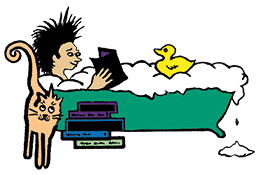|
|
Transformation: Jung's Legacy And Clinical Work Today
Stock informationGeneral Fields
Special Fields
DescriptionThe book offers a challenging reading of the legacy of C.G. Jung, who offered fascinating insights into the psyche but did not provide a theoretical framework for clinical work. Thus, clinicians are faced with both the richness and lacunae of Jung's legacy and how to work with it. This challenge is taken up by distinguished post-Jungian thinkers from Britain, Europe and the US who, in fertile contact with psychoanalysis, reassess Jung's work and propose new tools for clinical practice. By looking anew at concepts such as maternal containment, affect, ego formation and ego strength, infantile loss, envy and friendship they find ways of working that integrate Jung's thought with Post-Jungian developments and a psychoanalytic approach. By bringing together contemporary clinicians who approach their work from the lived experience in the consulting room, rather than adherence to particular theories, the book is intended for clinicians of different schools who are interested in a deeper understanding of the relationship between patient and analyst and in integrating ideas that might be useful. Transformation will be essential reading for all those interested in exploring various approaches to clinical work and the application of Jung's ideas, including experienced clinicians in work with adults and children as well as students of psychotherapy and counselling. Reviews'A boat that is caulked with a synoptic understanding of depth psychology, this sleek, seminal book, rowed by top-tier Jungian clinicians, is propelled by repeated strokes of insight. Transformation answers a question that has long troubled psychoanalysts who have tried to take analytical psychology seriously: whether interpretations of the psyche that attempt to read the complex intentions of affective archetypal images can possibly be related to more mainstream psychoanalytic understandings of the language of the unconscious, which see that as a dialectic between desire and defences against desire's realisation. It establishes beyond any doubt that contemporary analytic patients themselves are regularly making just such a connection between Jung's unconscious and Freud's in their therapies.'- John Beebe, past President of the C.G. Jung Institute of San Francisco, and author of Integrity in Depth 'This remarkable collection of writings on Jung's legacy astutely combines cutting-edge reflections on analytical theory with the immediacy of clinical practice. Each chapter in turn reveals the author's unique, personal idiom while simultaneously maintaining a vibrant link to the larger analytic tradition; the editors are to be highly commended for their judicious choices throughout. The broad, international range of senior clinicians who have contributed to this volume admirably display a multitude of approaches to the theme of transformation that subtly combine to transcend any single point of view, and create what will likely become a classic.'- Joseph Cambray, President of the International Association for Analytical Psychology 2010-2013 'This vitally topical book led me into a protracted state of critical thinking and reflection on both my analytic work and on the possibly defensive use of meta-theory. All clinical theory arises out of the process of trying to understand and address actual clinical issues, and Jungian theory is mere ideology if not tested by and adapted through clinical experience. The ten contributions collected here are more deeply engaging, more wide-ranging and varied, and for me more analytically useful than any Jungian book I have read to date. Each chapter, in its own specific way, is clinically valuable, intellectually inspiring, and opens up a timely rethinking of analytic praxis.'- Giles Clark, Training Analyst, Sydney, Australia'This fine collection of papers takes forward the fruitful interaction between Jung, Bion, Klein, and Fordham, revealing valuable new insights, particularly around the theme of working with the unrepresentable unconscious in analysis. It will provide much learning and inspiration to all those interested in current developments in psychoanalytic theory and practice.'- Warren Colman, Consultant Editor, Journal of Analytical Psychology Author descriptionAlessandra Cavalli, PhD, trained as a child and adult analyst at the Society of Analytical Psychology. She works in private practice and teaches at the Tavistock Clinic and the British Association of Psychotherapists in London, and in Italy. She also supervises therapeutic work with children in care in Mexico (Juconi) and Italy (Casa delle Farfalle). Lucinda Hawkins is a Professional Member of the Society of Analytical Psychology in private practice in London. She is on the Editorial Board of the 'Journal of Analytical Psychology' and currently Book Review Editor. Co-author of 'Michelangelo' (1991), she was an editor of the 'Grove Dictionary of Art'. Martha Stevns is a member of the Society of Analytical Psychology in private practice in Cambridge, and she also teaches and supervises. She was an editor of the Swiss art magazine 'du'. |

